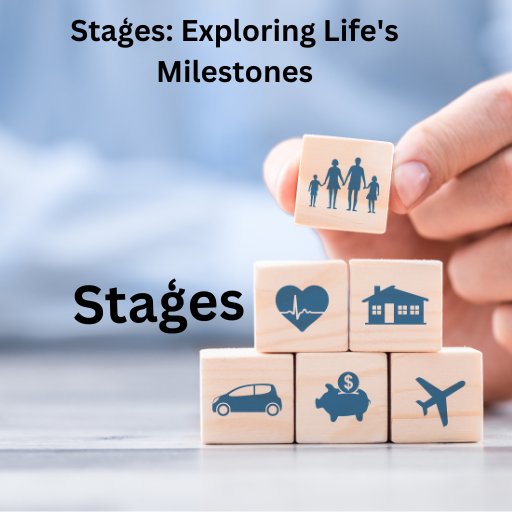Introduction
Welcome, dear reader, to a fascinating journey through the staģes of life, each brimming with its unique challenges and opportunities. Have you ever wondered how our early years shape the adults we become or why adolescence can feel like an emotional rollercoaster? Or perhaps, you’re curious about how adulthood and its myriad responsibilities transform us. This exploration delves deep into how each life stage molds our identity, capabilities, and outlook on the world.
Understanding staģes in Psychology
Psychology offers a lens through which we can understand the progression through various life staģes. From the innocence and exploratory nature of early childhood to the reflective wisdom of maturity, each phase plays a crucial role in our development.
Early Childhood
Cognitive Development
Early childhood is not just about learning to walk and talk. It’s a critical period for cognitive development, where kids start to make sense of the world around them. Think of it as the foundation of a house—everything that comes after relies on it being solid and well-built.
Emotional Maturation
Emotionally, these years are just as transformative. Children learn to manage feelings and begin to form their first social bonds. This emotional bedrock sets the stage for their future relationships and their understanding of themselves.
Adolescence
Identity vs. Role Confusion
Adolescence is a storm of change with the quest for identity at its heart. Erik Erikson famously theorized that teenagers must resolve the conflict of identity vs. role confusion—essentially, figuring out who they are or risking perpetual uncertainty about their place in the world.
Social Development
Socially, this stage is about forging deeper relationships beyond the family. Friendships and peers are pivotal in shaping teens’ views and behaviors, often lasting into adulthood.
Adulthood
Career and Family
As adults, the balancing act between career aspirations and family responsibilities takes center stage. Each decision in one aspect affects the other, often requiring a tightrope walk between personal ambitions and familial obligations.
Midlife Challenges
Midlife often brings introspection and, sometimes, significant life changes. Whether it’s career shifts, growing children, or aging parents, this stage requires adaptability and resilience.
Staģes in Personal Growth
The Role of Experiences
Life isn’t just about aging; it’s about experiences. These experiences, whether joyful, painful, or somewhere in between, sculpt our personal growth and our perspectives on life.
Overcoming Obstacles
Every stage has its hurdles, and learning to overcome them is part of our growth. Effective strategies might include seeking support, adapting to new situations, or reevaluating goals.
Self-Realization and Fulfillment
Ultimately, the journey through life’s stages is about reaching a place of self-realization and fulfillment. This is where personal development peaks, and we ideally find contentment in our achievements and the person we’ve become.
Conclusion
Navigating through the staģes of life is like traveling through a richly varied landscape, each part distinct yet part of a greater whole. Understanding these stages helps us appreciate not just where we’ve been but also where we’re headed, making the journey all the more rewarding.
FAQs
- What are the most important developmental milestones in early childhood?
- How can teenagers effectively manage the stress of identity formation?
- What strategies help adults balance career and family life?
- Are midlife crises as common as popularly believed?
- How can one achieve self-realization and fulfillment in later life staģes?
